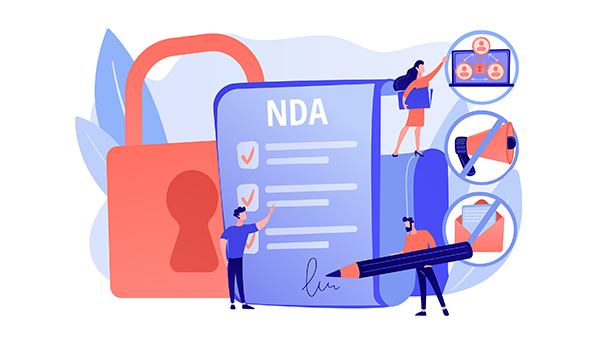Laying a foundation
HR departments play an important role in building a trusting and pleasant corporate culture. They should of course be well acquainted with the Code of Conduct, represent the values of the company and even live those values themselves.
All areas of the company – from top management to middle management to all departments – must actively exemplify and support compliance to create a credible compliance strategy. This is also the case when it comes to developing a speak-up culture where employees behave ethically and correctly from a legal standpoint while also daring to speak up and report grievances.
HR can bring the knowledge and prerequisites for this to the individual departments in the form of regular training sessions. If ethics, transparency and responsible behaviour are established and consolidated as a corporate culture, HR can then encourage employees to make use of the internal reporting channels.
HR should therefore directly inform new employees about the Code of Conduct during the onboarding process and point out that the company has internal reporting channels in place. They should also ensure that the whistleblowing system is easily accessible to all employees by, for example, linking to it on the intranet.
Cooperation with the compliance department
In addition to the works council who represent employee interests, the compliance department also directly affects the HR department’s areas of responsibility as it sets the rules for employee conduct. It is advisable for HR to work closely with the compliance and legal departments to jointly develop the compliance guidelines and Code of Conduct.
If violations do occur, the disciplinary consequences lie with the HR department and should be implemented in coordination with the legal department. Last but not least, HR management should ideally support the development and maintenance of the compliance culture through training while informing employees of their rights.
Looking inwards
Despite all the focus on wider employees, HR departments must not forget to look inwards. Are their own team members also behaving in accordance with the Code of Conduct and the applicable regulations? HR should ensure that the processes within their own department are also transparent and check or develop a concept on how to react and deal with misconduct (or reports of misconduct) within their own ranks as well as the likely consequences. As HR departments are important points of contact in the event of a compliance case within organisations, they themselves also have to meet the highest compliance standards.
The EU Whistleblowing Directive
Across Europe, more and more countries have transposed their own national interpretations of the EU Whistleblowing Directive which requires companies with at least 50 employees to establish a secure whistleblowing system. Generally, the new national laws coming into force oblige organisations to establish an internal reporting channel and provides for external reporting to a third-party entity. In Italy, for example, this will be the Autorità Nazionale Anticorruzione (National Anti-corruption Authority) while in Germany, it will be the Bundesamt für Justiz (The Federal Office of Justice).
When worst comes to worst
When a report is received, the company has to act quickly. The EU Whistleblowing Directive stipulates that an acknowledgement of receipt of the report must be sent to the whistleblower within seven days while feedback on the outcome and consequences of the investigation have to be provided within three months. This is also reflected in the implementation of the legislation at country level.
If the report is not investigated by an external expert but only investigated internally, HR staff may be called to support the compliance team. HR is frequently best placed to assess the validity or consequences of an allegation, particularly if it directly relates to an individual’s misconduct.
Within a compliance procedure, the HR team can also discuss ethical issues with the individual involved through the whistleblowing platform’s messaging channel and allay fears of reprisals. The whistleblowing process can prove stressful and emotional for employees speaking out and it can also be part of HR’s responsibilities to ensure employees feel secure in terms of labour law.
Labour law and whistleblowing
Under the EU Whistleblowing Directive, employees must not suffer reprisals at work for whistleblowing and this takes into account bullying and discrimination, denial of promotion, punitive transfers and, of course, suspension or dismissal.
If the report is not anonymous and the name of the whistleblower is known internally, it is not only the task of the works council to speak up for the employee. The HR department should also be concerned about protecting employees from reprisals in order to maintain employees’ trust in the company and in credible compliance.
If, after an internal report, labour law measures are taken against an employee, companies must be able to prove in a case of doubt that any action taken is not related to the person’s whistleblowing report. To safeguard themselves, HR departments should sufficiently document the reasons and legal steps taken in the sense of shifting the burden of proof, so that the company’s behaviour can be explained in the event of a labour court despite.
In the extremely rare case that a whistleblower makes a deliberately false report, the HR department should take over disciplinary measures including warnings or dismissal. Even criminal proceedings against the employee are not excluded from the disciplinary process.
Whistleblowing Laws in the European Union
A glance at the implementation of the EU Whistleblowing Directive in EU Member States









